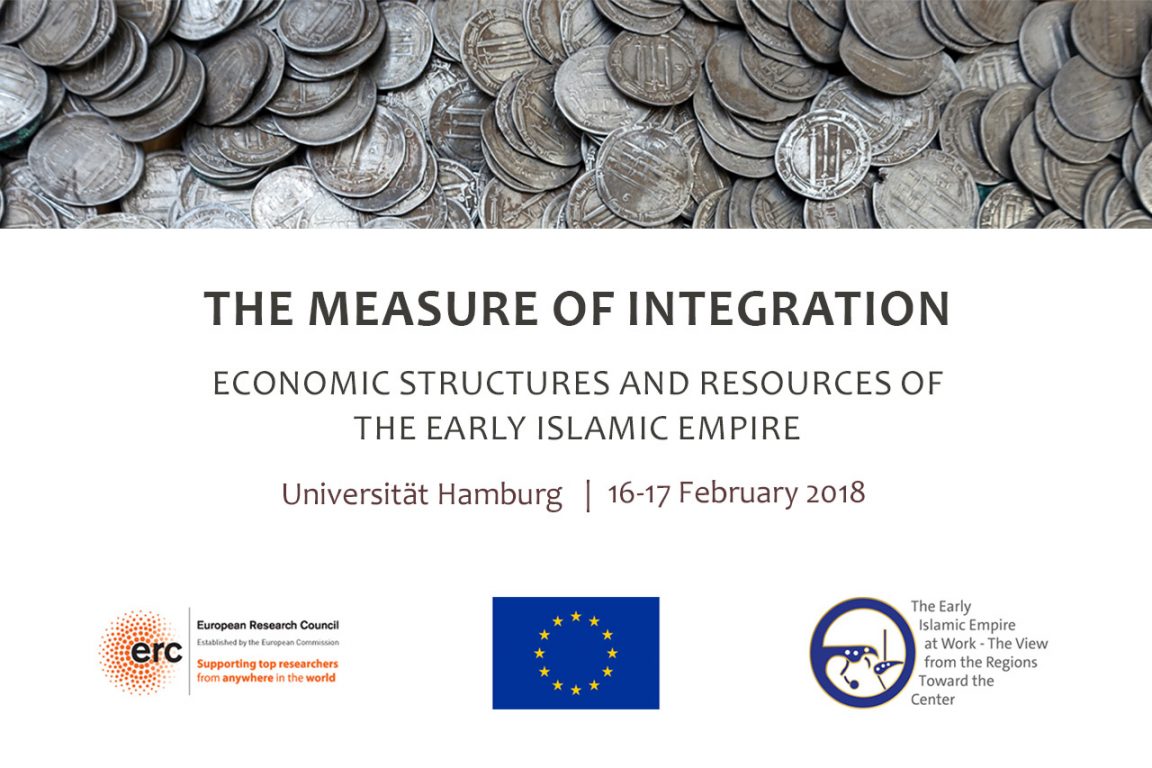The Measure of Integration – Economic Structures & Resources of the Early Islamic Empire

About The Event
Date: February 16-17, 2018
Venue: Universität Hamburg, Hamburg, Germany
The Old World dry belt from the Atlantic to the Hindukush experienced in the Early Islamic Empire a prosperity and mobility of resources and people which was unprecedented in that vast realm. As in the Roman Mediterranean World, the economy played a vital role in the integration of the empire.
This workshop aims at developing an empirically based theoretical framework to gain a better understanding of the economic structures within the early Islamic Empire, as well as their potential as an integrative force connecting the different regions governed by the early caliphate.
The workshop proposes a more comprehensive view of economy, encompassing road and sea networks and their maintenance, monetary and fiscal politics, agricultural improvements in irrigation and crops, industrial structures, and the influences of climate conditions. Beyond examining these economic dimensions of the early Islamic empire, the workshop shall also consider questions of theory and methodology for future research.
Our guest speakers are:
Prof. John F. Haldon (Princeton University), Prof. Maya Shatzmiller (Western University Canada), Dr. Marek Jankowiak (Khalili Research Centre, University of Oxford), Prof. Timothy Power (Zayed University, Abu Dhabi), and Prof. Michael Decker (University of South Florida).
1. Regulating the Economy
The stability and prosperity of medieval states required the expansion of a vast bureaucracy that could manage economic policies and measures. No coherent economic theory existed before the 17th century and mercantilism. However, people and administrations had a good pre-scientific understanding of economy and the implications of certain economic measures, such as taxation. The first theme of the workshop assesses various economic measures that the caliphal administration had at its disposal.
2. Economic Resources
Some of the most important issues which have to be addressed by a growing pre-modern economy are
– shortage of labor
– physical shortage of means of exchange
– scarcity of food and clothing
3. Long Distance Trade by Land and Sea
Long distance trade within an empire is a clear measure of its integration. Trade includes the staples of an economy: foodstuff, textile, and labor. But profit is also to be made from ‘leisure products’, such as silk and ceramics from China, fur and amber from Eastern and Northern Europe.
4. Round Table Theories on the Economy of the Islamic Empire
In light of the absence of theorization in the study of early Islamic economy, the final round table will discuss potential conceptualizations of the economic integration of the empire.


We're always eager to hear from you.
If you’d like to learn more about us or have a general comments and suggestions about the site, email us at